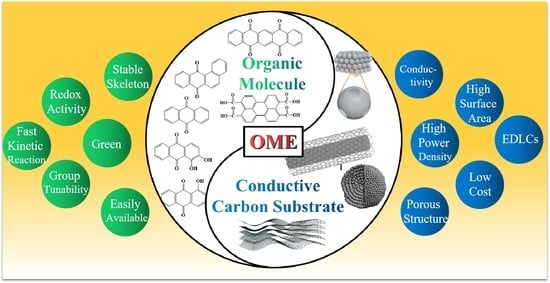Organic Small-Molecule Electrodes: Emerging Organic Composite Materials in Supercapacitors for Efficient Energy Storage
Abstract
Share and Cite
He, Y.; Wei, Q.; An, N.; Meng, C.; Hu, Z. Organic Small-Molecule Electrodes: Emerging Organic Composite Materials in Supercapacitors for Efficient Energy Storage. Molecules 2022, 27, 7692. https://doi.org/10.3390/molecules27227692
He Y, Wei Q, An N, Meng C, Hu Z. Organic Small-Molecule Electrodes: Emerging Organic Composite Materials in Supercapacitors for Efficient Energy Storage. Molecules. 2022; 27(22):7692. https://doi.org/10.3390/molecules27227692
Chicago/Turabian StyleHe, Yuanyuan, Qiaoqiao Wei, Ning An, Congcong Meng, and Zhongai Hu. 2022. "Organic Small-Molecule Electrodes: Emerging Organic Composite Materials in Supercapacitors for Efficient Energy Storage" Molecules 27, no. 22: 7692. https://doi.org/10.3390/molecules27227692
APA StyleHe, Y., Wei, Q., An, N., Meng, C., & Hu, Z. (2022). Organic Small-Molecule Electrodes: Emerging Organic Composite Materials in Supercapacitors for Efficient Energy Storage. Molecules, 27(22), 7692. https://doi.org/10.3390/molecules27227692






